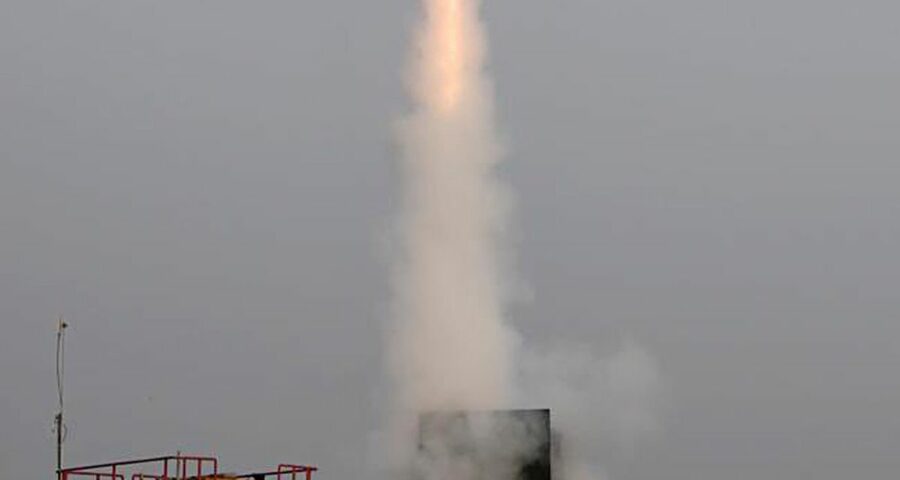The MRSAM is amongst the most lethal surface-to-air missiles in service anywhere.
Ajai Shukla reports.
The Indian military’s first tri-service missile, which will protect naval warships, air force bases and army combat units from airborne attacks took a step towards full-scale production with the roll-out of its first components.
The Medium Range Surface to Air Missile (MRSAM) has been developed for the army, navy and air force by the Defence Research and Development Organisation, in close partnership with Israel Aerospace Industries.
The delivery on Tuesday was of the first batch of MRSAM components being manufactured in Hyderabad by an Indian joint venture called Kalyani Rafael Advanced Systems.
On July 11, 2019, KRAS was awarded a $100 million contract to build the mid-sections of 1,000 missiles.
These will be integrated with MRSAM components built elsewhere into combat-ready missile systems by defence public sector undertaking, Bharat Dynamics Ltd.
Kalyani Strategic Systems Ltd holds 51 per cent of the JV, with Rafael Advanced Systems holding 49 per cent.
The MRSAM is amongst the most lethal surface-to-air missiles in service anywhere.
Fired from under-deck canisters on-board Indian warships, it is guided by the on-board MF-STAR radar to intercept incoming anti-ship missiles at ranges out to 70 km — a feat akin to hitting a bullet with a bullet. The ship-borne version of the missile is called the Long Range Surface to Air Missile (LRSAM).
The army and air force versions, called the MRSAM, are mounted on trucks for mobility. They primarily guard against enemy fighter aircraft, striking them 70 km from where the missile battery is deployed.
So high is the military’s confidence in the MRSAM that in September 2016, when the army was planning to strike Pakistan-backed terrorist camps across the Line of Control to avenge the killing of 19 Indian soldiers near Uri, the MRSAM — then still under development — was moved from BDL to protect a vulnerable air force base.
When Indian commandos crossed the LoC on the night of September 28, 2016, the MRSAM was ready for operational use. As it turned out, the missiles were not required.
KRAS will deliver more than 1,000 MRSAM production kits over the next 3-4 years. In case of export orders, the numbers could increase.
“We are confident KRAS will not only build products for the Indian armed forces but will, at the same time, trigger and help achieve the Indian government’s vision of exports from India,” says Brigadier General Pinhas Yungman of Rafael Advanced Defense System.
“Apart from the missile kits,” ,” adds Kalyani Group chief Baba Kalyani,”we will extend our support in maintenance and repair operations.”
Source: Read Full Article

